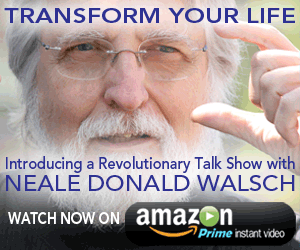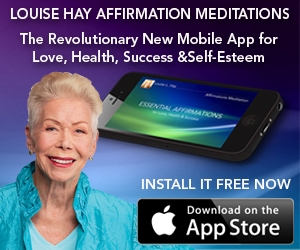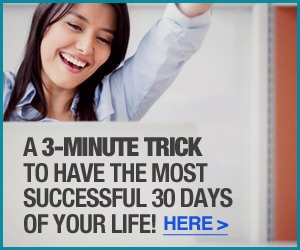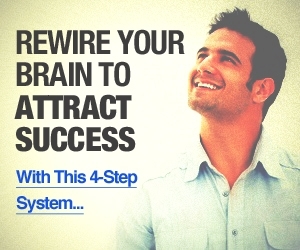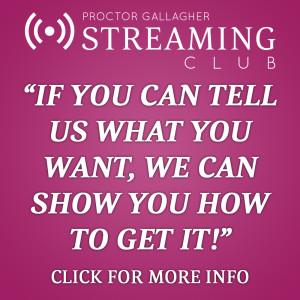Each one of us carries ingrained, unconscious ideas of just how happy and successful we can be. Celebrated psychologist and author Gay Hendricks explains that by learning to identify and transcend these self-imposed “Upper Limits,” we can expand our potential for happiness and abundance in extraordinary ways.
Michael Dell, founder of Dell computers and one of the youngest self-made billionaires in history, is among the most brilliant people I’ve ever met. I had the pleasure of doing executive coaching with him and other members of his team at a time when the company was growing rapidly. The quality I most appreciate about Michael is his openness to learning. Many high-level executives I’ve known are saddled with an equally high degree of defensiveness and a deep need to be right all the time. Not Michael. He doesn’t put on the brakes when new learning is coming at him.
Michael wasn’t born with this gift. None of us is. To get to that level of undefended openness to learning, we have to practice as diligently as a professional skier or a virtuoso cellist. To make the kinds of leaps Michael Dell makes, we must learn to identify and transcend our Upper Limit, wherever and whenever we encounter it.
I haven’t met a person yet who didn’t suffer at least a little bit from what I call the Upper-Limit Problem. Even if you’re already extravagantly successful, I’m sure that your own version of the Upper-Limit Problem is still holding you back from achieving your true potential.
I discovered my own Upper-Limit Problem early in my career, when I was working as a research psychologist at Stanford University. My work was going well, and I was happy in my relationships. One day, I leaned back in my chair and let out a sigh of relaxed satisfaction. I felt great. A few seconds later, though, I found myself worrying about my daughter, Amanda, who was away from home on a summer program. Was she feeling lonely and miserable? Was she being taunted by other kids? I called the dorm supervisor where she was staying. She told me Amanda was fine and that it was normal for parents to worry. Indeed, she said I was the third parent to call that day with similar concerns.
“Really?” I said, surprised. “Why do you think that is?” She gave a wise chuckle: “You don’t realize how much you miss her, so you think she must be hurting somehow.” I thanked her and hung up. I knew that something important had just happened. I wondered, “How did I go from feeling good in one moment to manufacturing a stream of painful images in the next?”
Suddenly, it dawned on me: I manufactured the stream of painful images because I was feeling good! Some part of me was afraid of enjoying positive energy for any extended period of time. When I reached the Upper Limit of how much positive feeling I could handle, I created a series of unpleasant thoughts to deflate myself. The thoughts I manufactured were guaranteed to make me return to a state I was more familiar with: not feeling so good.
I applied this insight to different parts of my life, including my relationships and health. Once I saw the pattern, it became obvious how it worked: I would enjoy a period of relationship harmony, then stop the flow of connection by criticizing or starting an argument. I would eat healthy food and get plenty of exercise, feeling great for several days in a row. Then I would go on a weekend binge of restaurant food, wine and late nights that would leave me feeling dull and bloated.
I realized the key problem: I have a limited tolerance for feeling good. When I hit my Upper Limit, I manufacture thoughts and behave in ways that make me feel bad. So, I began to wonder how I might extend the periods of contentment in my life. Can I eliminate the behaviors that stop the flow of positive energy and feel great all the time? Can I allow things to always go well in my life?
I owe my life to these questions. In the process of answering them, I was catapulted into an extraordinary place I had never imagined. I believe anyone can experience the same sort of transformation — if they choose to.
(continued on next page…)
To internalize these ideas and take them to the next level, be sure to check out Self-Esteem Meditation, Gay’s best-selling app for iOS. For the Android version, go here.
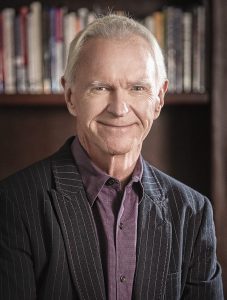
Gay Hendricks, Ph.D. has been a leader in the fields of relationship transformation and bodymind therapies for over 45 years. After earning his Ph.D. in counseling psychology from Stanford, Gay served as professor of Counseling Psychology at the University of Colorado for 21 years. He has written and co- authored (with Kathlyn) 35 books, including the bestsellers The Big Leap and Conscious Loving.
Gay has offered seminars worldwide and appeared on more than 500 radio and television shows, including OPRAH, CNN, CNBC, 48 HOURS and others. In addition to his work with The Hendricks Institute, Gay’s most recent book, co- authored with Kathlyn, is Conscious Loving Ever After. Gay and Kathlyn have also launched their own talk show on Amazon: Conscious Love Stories.




